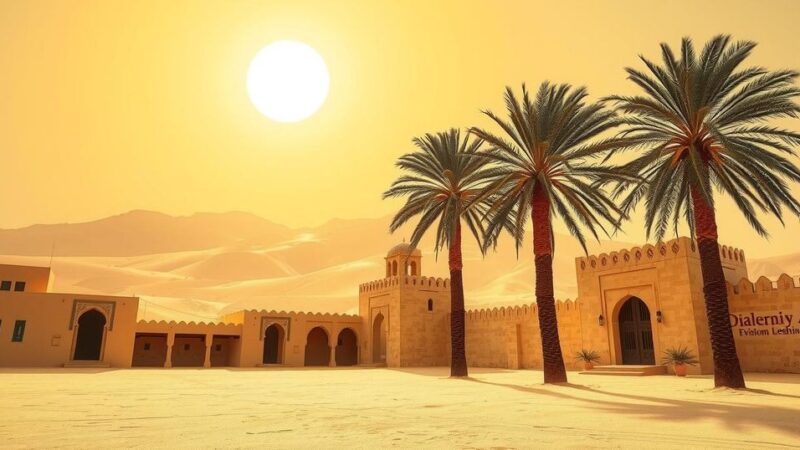Qatar escalates criticism of Israel, warning against attacks on Iran’s nuclear sites. The foreign minister fears water shortages affecting Gulf states following such actions, hoping for U.S. diplomatic engagement rather than military conflict. This reflects a strategic shift in Qatar’s foreign policy as it seeks to negotiate ceasefires while exerting pressure on Israel.
Qatar has intensified its criticism of Israel, particularly regarding military actions against Iran. In a recent interview on the Tucker Carlson Show, the Qatari foreign minister issued a grave warning about the repercussions of attacking Iranian nuclear facilities, citing potential regional water shortages. This stance appears aimed at encouraging the U.S. to pursue a renewed agreement with Iran, rather than escalating tensions with military confrontations.
Doha’s statements align with a broader strategy to heighten its influence in the region. Qatar promptly rebutted claims from Israel’s Shin Bet, which linked Qatari financial aid to Hamas’s activities during the October 7 attacks, labeling these assertions as self-serving. Furthermore, media scrutiny has increased around Qatar’s impact on Israeli policy and its involvement in ceasefire negotiations in Gaza.
The weekend’s comments marked an escalation in Qatar’s demands, as it called for Israeli nuclear facilities to come under the oversight of the International Atomic Energy Agency (IAEA) and for Israel to commit to the Non-Proliferation of Nuclear Weapons Treaty (NPT). This coincides with ongoing talks in Doha about establishing a ceasefire, in which Qatar and Hamas appear to have significant leverage over Israel.
Qatar’s foreign minister warned that an assault on Iran’s Bushehr Nuclear Power Plant could result in catastrophic consequences for the region, including severe water contamination for Gulf states.
He reiterated, “If Iran’s nuclear facilities are attacked, we will run out of drinking water in three days, a situation affecting Qatar, Kuwait, the UAE, and more,” underscoring the critical geographical proximity to Iran. Al Thani remains hopeful for a diplomatic resolution and emphasized, “We do not support any military action in this region in any way.”
Doha’s proactive strategy now includes pressure on Israel while simultaneously seeking positive engagement with conservative media figures in the U.S., which could influence American policy towards the region. Meanwhile, developments concerning American hostages held in Gaza remain closely watched, with efforts underway to secure their release, signaling an ongoing complex diplomatic landscape.
In summary, Qatar’s recent actions reflect a strategic alignment aimed at criticizing Israel while advocating for diplomatic solutions concerning Iran’s nuclear program. The Qatari leadership warns of dire consequences in the event of military attacks on Iran, emphasizing the need for negotiation. As Qatar increases pressure on Israel, their influence in regional politics becomes increasingly significant, particularly concerning peace negotiations and hostages held in Gaza.
Original Source: m.jpost.com






